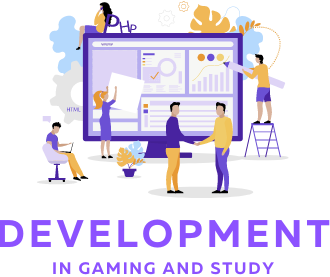Online gaming has transformed from a niche hobby into a global phenomenon, captivating millions of players of all ages. This rapid evolution has not only reshaped the entertainment industry but has also significantly influenced social interactions, culture, and even the economy.
The Birth and Growth of Online Gaming
The origins of online gaming can be traced back to the early days of the internet in the 1970s and 1980s, when simple multiplayer games like text-based MUDs (Multi-User Dungeons) allowed players to explore virtual worlds and interact with each other. The 1990s saw the rise of more sophisticated games with graphical interfaces, such as “Diablo” and “Quake,” which could be played over local area networks and the burgeoning World Wide Web.
With the advent of broadband internet in the early 2000s, online gaming began to flourish. Massively Multiplayer Online Role-Playing Games (MMORPGs) like “World of Warcraft” became cultural landmarks, boasting millions of subscribers and vast, persistent worlds where players could cooperate and compete on an unprecedented scale. Concurrently, first-person shooters (FPS) like “Counter-Strike” popularized competitive online gaming, leading to the emergence of esports.
The Social Dynamics of Online Gaming
Online gaming has significantly altered how people socialize. Games like “Minecraft,” “Fortnite,” and “Among Us” have become virtual meeting places where friends and strangers alike can interact. These platforms provide opportunities for teamwork, strategy, and creative expression, often fostering a sense of community among players.
Voice chat and live streaming services such as Twitch and YouTube Gaming have further enhanced the social aspect, allowing gamers to share their experiences and build large followings. For many, these platforms have become essential social outlets, especially during times of physical isolation, such as the COVID-19 pandemic.
Economic Impact and Professionalization
The economic impact of online gaming is profound. The global gaming market was valued at over $150 billion in 2020, with a significant portion coming from online games. This includes direct spending on games and in-game purchases, as well as indirect revenue from advertising and sponsorships.
Esports has emerged as a legitimate professional field, with top players earning millions of dollars in prize money and sponsorship deals. Major tournaments, such as “The International” for “Dota 2” and the “League nexus slot of Legends World Championship,” attract viewership numbers rivaling those of traditional sports events.
The Technological Frontier
Technological advancements continue to drive the evolution of online gaming. Virtual Reality (VR) and Augmented Reality (AR) are opening new frontiers for immersive gaming experiences. Games like “Beat Saber” and “Pokémon GO” demonstrate the potential of these technologies to blend virtual and real worlds seamlessly.
Cloud gaming services, such as Google Stadia and NVIDIA GeForce Now, promise to revolutionize the accessibility of high-quality gaming experiences, allowing players to stream games on various devices without the need for powerful hardware. This democratization of gaming access could further expand the global gaming community.
Challenges and Considerations
Despite its many benefits, online gaming also faces challenges. Issues like addiction, cyberbullying, and the impact of microtransactions on player experience require ongoing attention and regulation. Ensuring a safe and inclusive environment for all players is a critical priority for developers and communities alike.
Moreover, the environmental impact of gaming, particularly with the increasing energy demands of data centers and gaming hardware, is a growing concern. Sustainable practices and innovations will be essential to mitigate these effects as the industry continues to expand.
Conclusion
Online gaming has come a long way from its humble beginnings, evolving into a multifaceted industry that touches nearly every aspect of modern life. It offers unparalleled opportunities for entertainment, socialization, and even career development, while also posing new challenges that must be addressed responsibly. As technology continues to advance, the future of online gaming promises to be as dynamic and transformative as its past.
